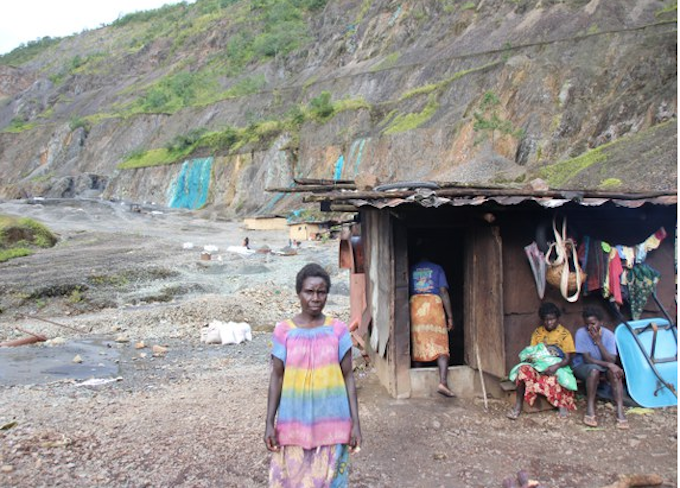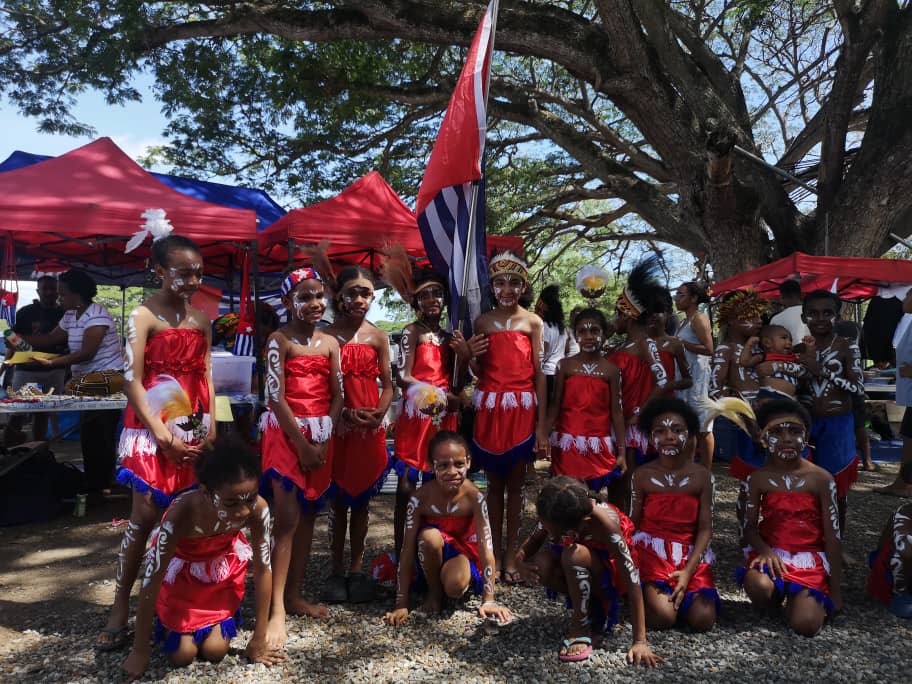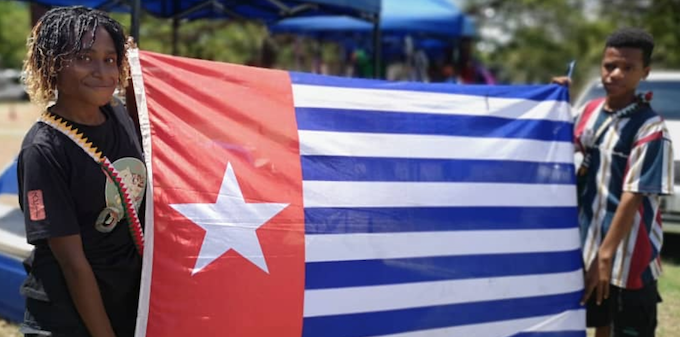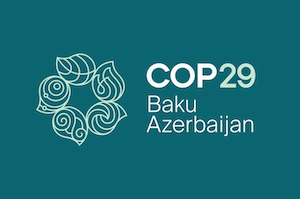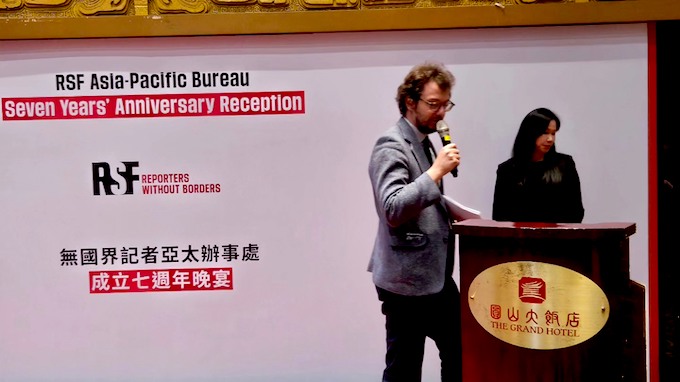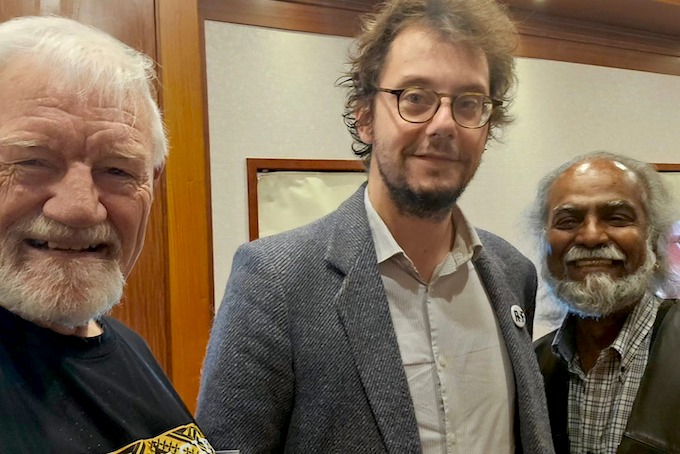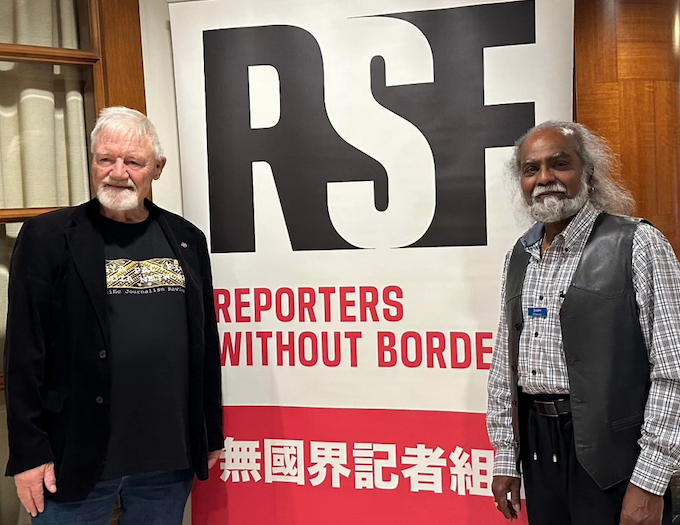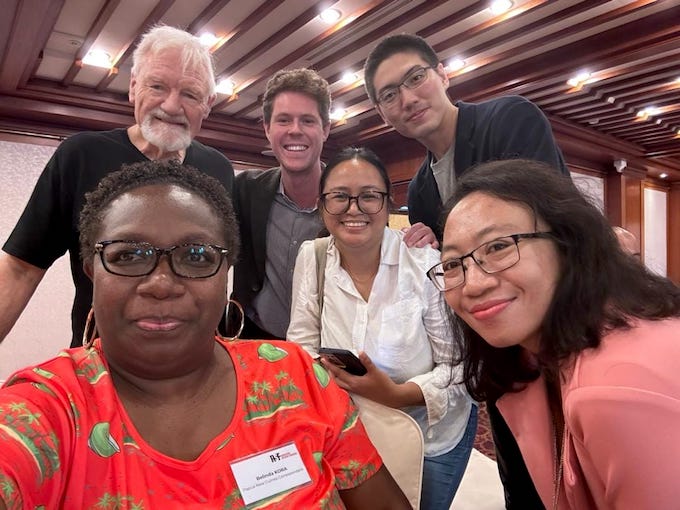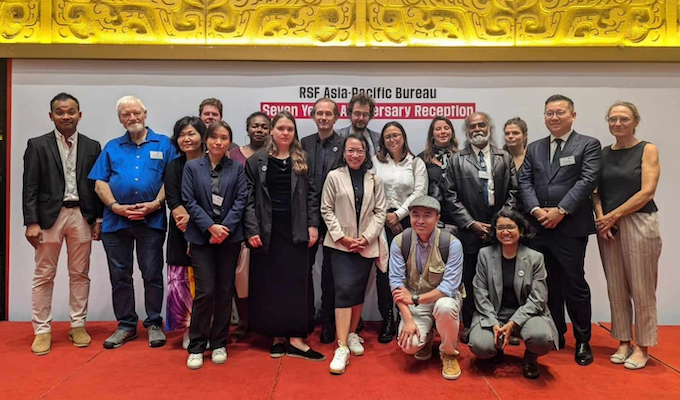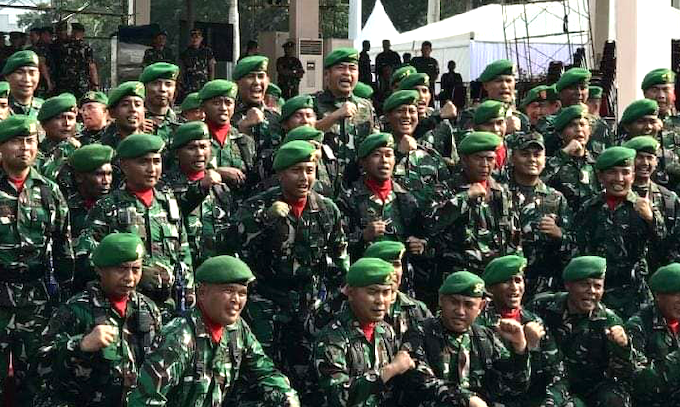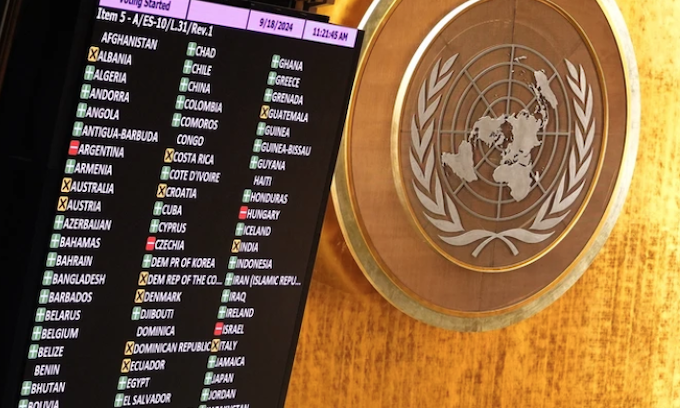ANALYSIS: By Ali Mirin
Indonesia officially joined the BRICS — Brazil, Russia, China and South Africa — consortium last week marking a significant milestone in its foreign relations.
In a statement released a day later on January 7, the Indonesian Ministry of Foreign Affairs said that this membership reflected Indonesia’s dedication to strengthening multilateral cooperation and its growing influence in global politics.
The ministry highlighted that joining BRICS aligned with Indonesia’s independent and proactive foreign policy, which seeks to maintain balanced relations with major powers while prioritising national interests.
This pivotal move showcases Jakarta’s efforts to enhance its international presence as an emerging power within a select group of global influencers.
Traditionally, Indonesia has embraced a non-aligned stance while bolstering its military and economic strength through collaborations with both Western and Eastern nations, including the United States, China, and Russia.
By joining BRICS, Indonesia clearly signals a shift from its non-aligned status, aligning itself with a coalition of emerging powers poised to challenge and redefine the existing global geopolitical landscape dominated by a Western neoliberal order led by the United States.
Indonesia joining boosts BRICS membership to 10 countres — Brazil, Russia, India, China, South Africa, Egypt, Ethiopia, Indonesia, Iran and the United Arab Emirates — but there are also partnerships.
Supporters of a multipolar world, championed by China, Russia, and their allies, may view Indonesia’s entry into BRICS as a significant victory.
In contrast, advocates of the US-led unipolar world, often referred to as the “rules-based international order” are likely to see Indonesia’s decision as a regrettable shift that could trigger retaliatory actions from the United States.
The future will determine how Indonesia balances its relations with these two superpowers. However, there is considerable concern about the potential fallout for Indonesia from its long-standing US allies.
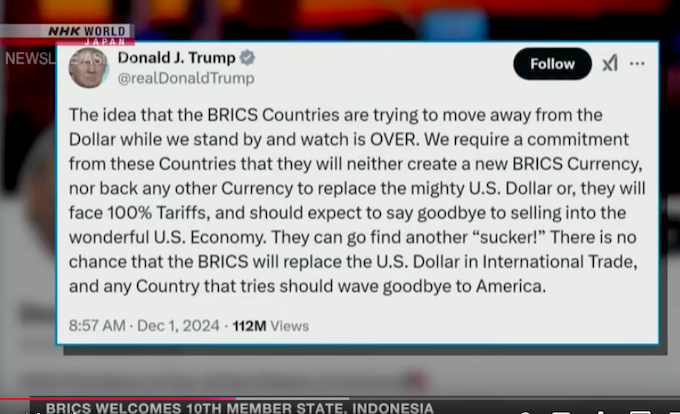
The smaller Pacific Island nations, which Indonesia has been endeavouring to win over in a bid to thwart support for West Papuan independence, may also become entangled in the crosshairs of geostrategic rivalries, and their response to Indonesia’s membership in the BRICS alliance will prove critical for the fate of West Papua.
Critical questions
The crucial questions facing the Pacific Islanders are perhaps related to their loyalties: are they aligning themselves with Beijing or Washington, and in what ways could their decisions influence the delicate balance of power in the ongoing competition between great powers, ultimately altering the Melanesian destiny of the Papuan people?
For the Papuans, Indonesia’s membership in BRICS or any other global or regional forums is irrelevant as long as the illegal occupation of their land continues driving them toward “extinction”.
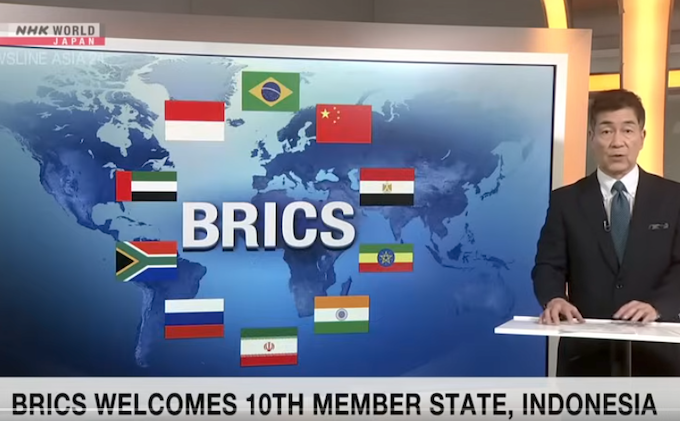
The pressing question for Papuans is which force will ultimately dismantle Indonesia’s unlawful hold on their sovereignty.
Will Indonesia’s BRICS alliance open new paths for Papuan liberation fighters to re-engage with the West in ways not seen since the Cold War? Or does this membership indicate a deeper entrenchment of Papuans’ fate within China’s influence — making it almost impossible for any dream of Papuans’ independence?
While forecasting future with certainty is difficult on these questions, these critical critical questions need to be considered in this new complex geopolitical landscape, as the ultimate fate of West Papua is what is truly at stake here.
Strengthening Indonesia’s claims over West Papuan sovereignty
Indonesia’s membership in BRICS may signify a great victory for those advocating for a multipolar world, challenging the hegemony of Western powers led by the United States.
This membership could augment Indonesia’s capacity to frame the West Papuan issue as an internal matter among BRICS members within the principle of non-interference in domestic affairs.
Such backing could provide Jakarta with a cushion of diplomatic protection against international censure, particularly from Western nations regarding its policies in West Papua.
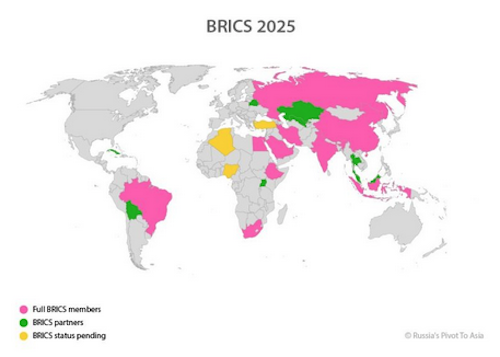
However, it is also crucial to note that for more than six decades, despite the Western world priding itself on being a champion of freedom and human rights, no nation has been permitted to voice concern or hold Indonesia accountable for the atrocities committed against Indigenous Papuans.
The pressing question to consider is what or who silences the 193 member states of the UN from intervening to save the Papuans from potential eradication at the hands of Indonesia.
Is it the United States and its allies, or is it China, Russia, and their allies — or the United Nations itself?
Indonesia’s double standard and hypocrisy
Indonesia’s support for Palestine bolsters its image as a defender of international law and human rights in global platforms like the UN and the Organisation of Islamic Cooperation (OIC).
This commitment was notably highlighted at the BRICS Summit in October 2024, where Indonesia reaffirmed its dedication to Palestinian self-determination and called for global action to address the ongoing conflict in line with international law and UN resolutions, reflecting its constitutional duty to oppose colonialism.
Nonetheless, Indonesia’s self-image as a “saviour for the Palestinians” presents a rather ignoble facade being promoted in the international diplomatic arena, as the Indonesian government engages in precisely the same behaviours it condemns Israel over in Palestine.
Military engagement and regional diplomacy
Moreover, Indonesia’s interaction with Pacific nations serves to perpetuate a façade of double standards — on one hand, it endeavours to portray itself as a burgeoning power and a champion of moral causes concerning security issues, human rights, climate change, and development; while on the other, it distracts the communities and nations of Oceania — particularly Vanuatu and the Solomon Islands, which have long supported the West Papua independence movement — from holding Indonesia accountable for its transgressions against their fellow Pacific Islanders in West Papua.
On October 10, 2024, Brigadier-General Mohamad Nafis of the Indonesian Defence Ministry unveiled a strategic initiative intended to assert sovereignty claims over West Papua. This plan aims to foster stability across the Pacific through enhanced defence cooperation and safeguarding of territorial integrity.
The efforts to expand influence are characterised by joint military exercises, defence partnerships, and assistance programmes, all crafted to address common challenges such as terrorism, piracy, and natural disasters.
However, most critically, Indonesia’s engagement with Pacific Island nations aims to undermine the regional solidarity surrounding West Papua’s right to self-determination.
This involvement encapsulates infrastructure initiatives, defence training, and financial diplomacy, nurturing goodwill while aligning the interests of Pacific nations with Indonesia’s geopolitical aspirations.
Indonesia has formally joined the BRICS group, a bloc of emerging economies featuring Russia, China and others that is viewed as a counterweight to the West https://t.co/WArU5O2PfT pic.twitter.com/IQKmPOJqlS
— Al Jazeera English (@AJEnglish) January 7, 2025
Military occupation in West Papua
As Indonesia strives to galvanise international support for its territorial integrity, the military presence in West Papua has intensified significantly, instilling widespread fear among local Papuan communities due to heightened deployments, surveillance, and restrictions.
Indonesian forces have been mobilised to secure economically strategic regions, including the Grasberg mine, which holds some of the world’s largest gold and copper reserves.
These operations have resulted in the displacement of Indigenous communities and substantial environmental degradation.
As of December 2024, approximately 83,295 individuals had been internally displaced in West Papua due to armed conflicts between Indonesian security forces and the West Papua Liberation Army (TPNPB).
Recent reports detail new instances of displacement in the Tambrauw and Pegunungan Bintang regencies following clashes between the TPNPB and security forces. Villagers have evacuated their homes in fear of further military incursions and confrontations, leaving many in psychological distress.
The significant increase in Indonesia’s military presence in West Papua has coincided with demographic shifts that jeopardise the survival of Indigenous Papuans.
Government transmigration policies and large-scale agricultural initiatives, such as the food estate project in Merauke, have marginalised Indigenous communities.
These programmes, aimed at ensuring national food security, result in land expropriation and cultural erosion, threatening traditional Papuan lifestyles and identities.
For more than 63 years, Indonesia has occupied West Papua, subjecting Indigenous communities to systemic marginalisation and brink of extinction. Traditional languages, oral histories, and cultural values face obliteration under Indonesia’s colonial occupation.
A glimmer of hope for West Papua
Despite these formidable challenges, solidarity movements within the Pacific and global communities persist in their advocacy for West Papua’s self-determination.
These groups, united by a shared sense of humanity and justice, work tirelessly to maintain hope for West Papua’s liberation. Even so, Indonesia’s diplomatic engagement with Pacific nations, characterised by eloquent rhetoric and military alliances, represents a calculated endeavour to extinguish this fragile hope for Papuan liberation.
Indonesia’s membership in BRICS will either amplify this tiny hope of salvation within the grand vision of a new world re-engineered by Beijing’s BRICS and its allies or will it conceal West Papua’s independence dream on a path that is even harder and more impossible to achieve than the one they have been on for 60 years under the US-led unipolar world system.
Most significantly, it might present a new opportunity for Papuan liberation fighters to reengage with the new re-ordering global superpowers– a chance that has eluded them for more than 60 years.
From the 1920s to the 1960s, the tumult of the First and Second World Wars, coupled with the ensuing cries for decolonisation from nations subjugated by Western powers and Cold War tensions, forged the very existence of the nation known as “Indonesia.”
It seems that this turbulent world of uncertainty is upon us, reshaping a new global landscape replete with new alliances and adversaries, harbouring conflicting visions of a new world. Indonesia’s decision to join BRICS in 2025 is a clear testament to this.
The pressing question remains whether this membership will ultimately precipitate Indonesia’s disintegration as the US-led unipolar world intervenes in its domestic affairs or catalyse its growth and strength.
Regardless of the consequences, the fundamental existential question for the Papuans is whether they, along with their global solidarity networks, can reinvent themselves while nurturing the fragile hope of restoring West Papua’s sovereignty in a world rife with change and uncertainty?
Ali Mirin is a West Papuan academic and writer from the Kimyal tribe of the highlands bordering the Star mountain region of Papua New Guinea. He lives in Australia and contributes articles to Asia Pacific Report.
This post was originally published on Asia Pacific Report.
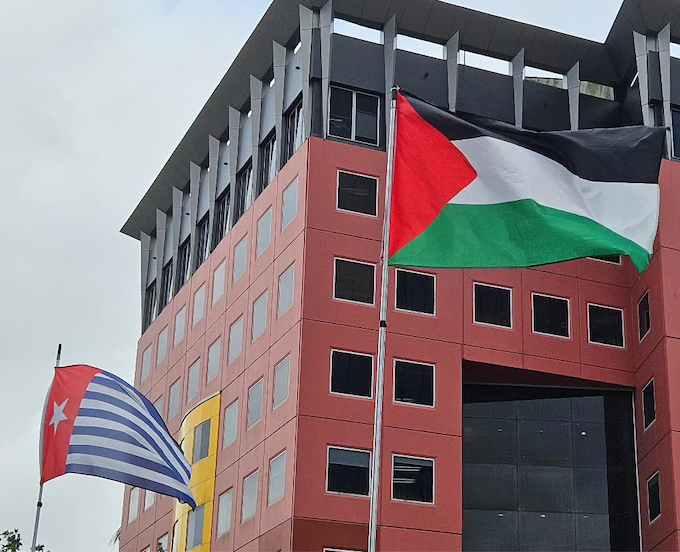
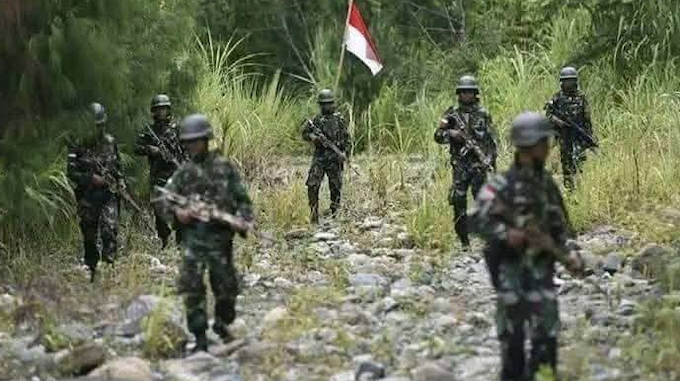
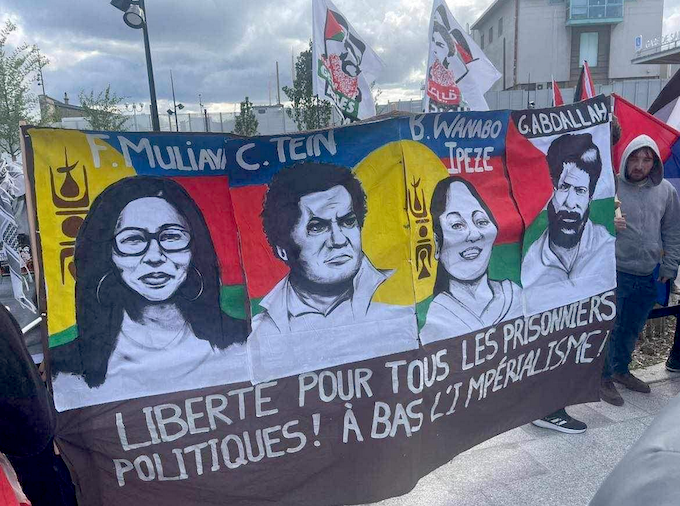
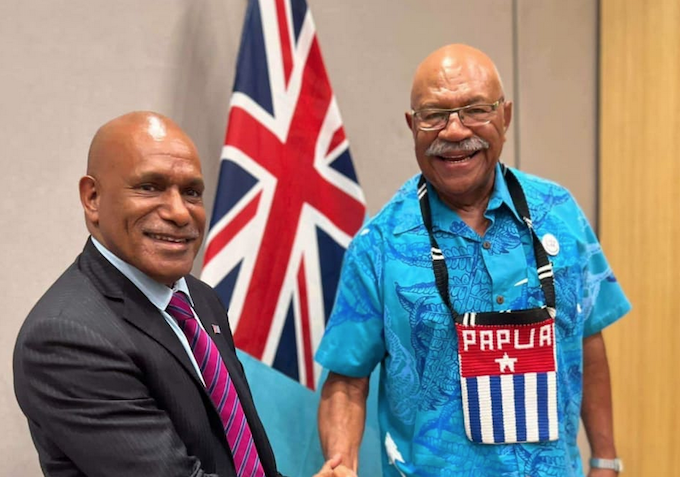
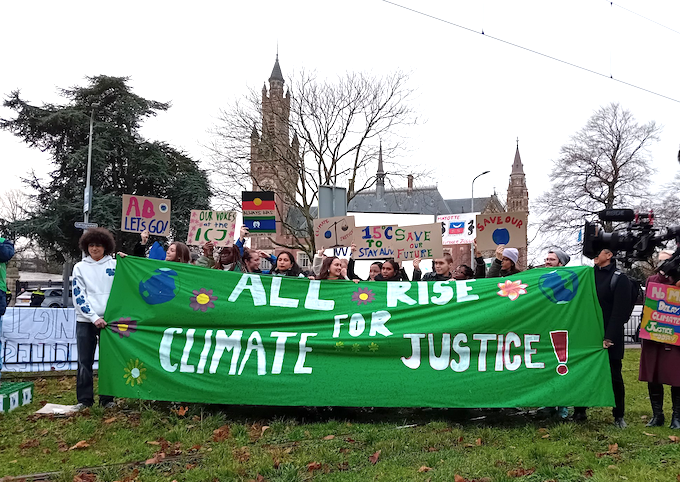
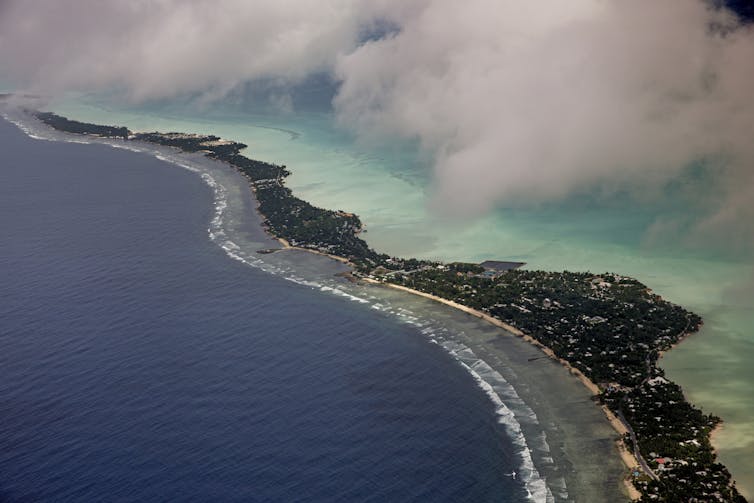
![PNG police commissioner David Manning (center) flanked by Vanuatu Police Commissioner Robson Iavro (left), Australian Federal Police commissioner Reece Kershaw (2nd right) and Australian Attorney-General Mark Dreyfus at the PPI launch, pictured on Dec. 10, 2024. [Stefan Armbruster/BenarNews]](https://media.rnztools.nz/rnz/image/upload/s--VKcmxE_e--/ar_16:10,c_fill,f_auto,g_auto,q_auto,w_1050/v1733947676/4KFAQQU_papacific_policing_initiative_2_jpeg?_a=BACCd2AD)
![Police ministers and chiefs from across the Pacific attended the launch of the PPI’s Pinkenba Hub, pictured on Dec. 10, 2024. [Stefan Armbruster/BenarNews]](https://media.rnztools.nz/rnz/image/upload/s--Zzq6dq4l--/ar_16:10,c_fill,f_auto,g_auto,q_auto,w_1050/v1733947676/4KFAQQU_papacific_policing_initiative_1_jpeg?_a=BACCd2AD)

